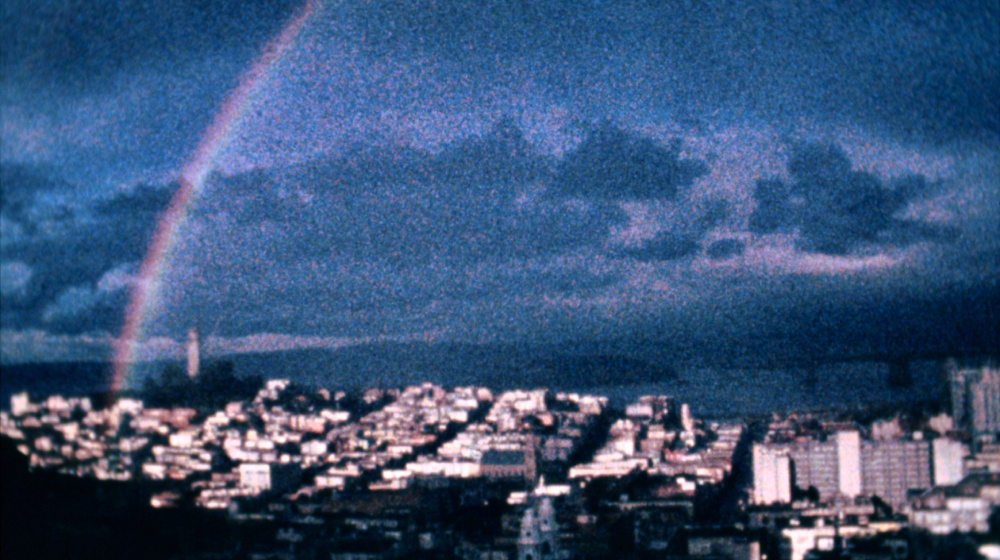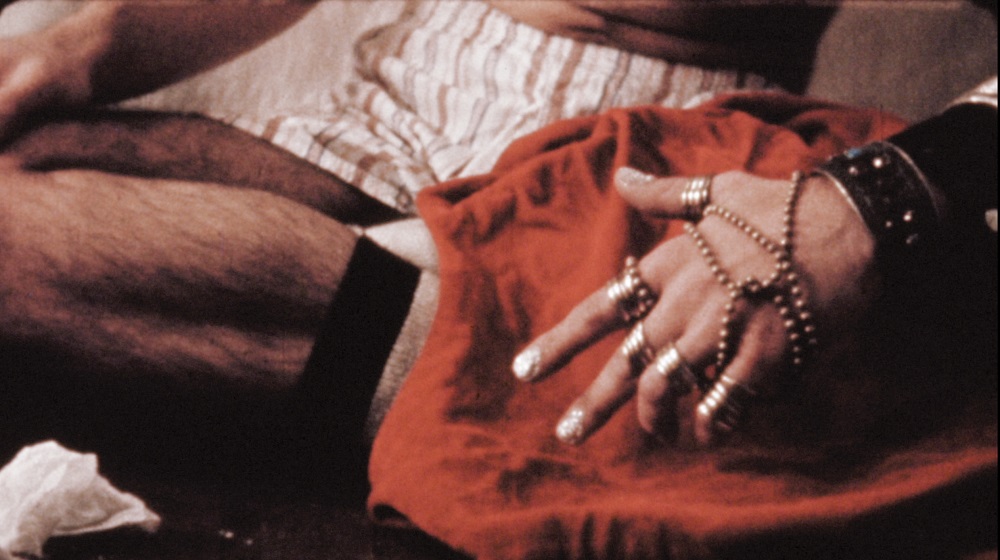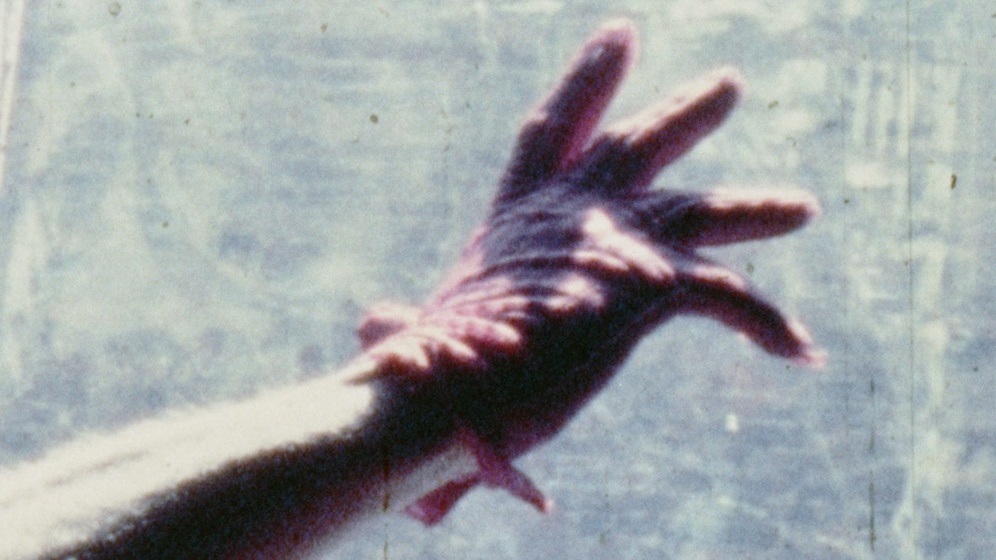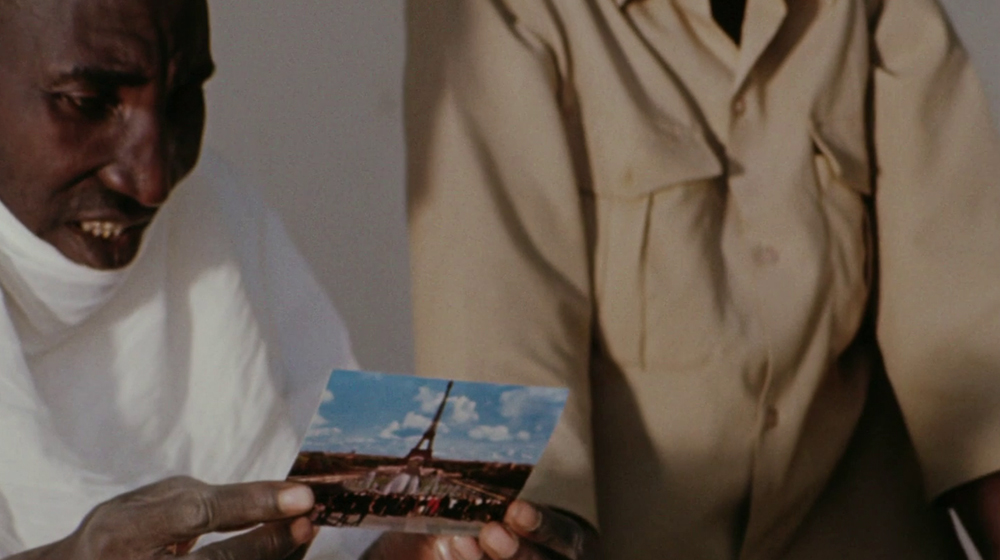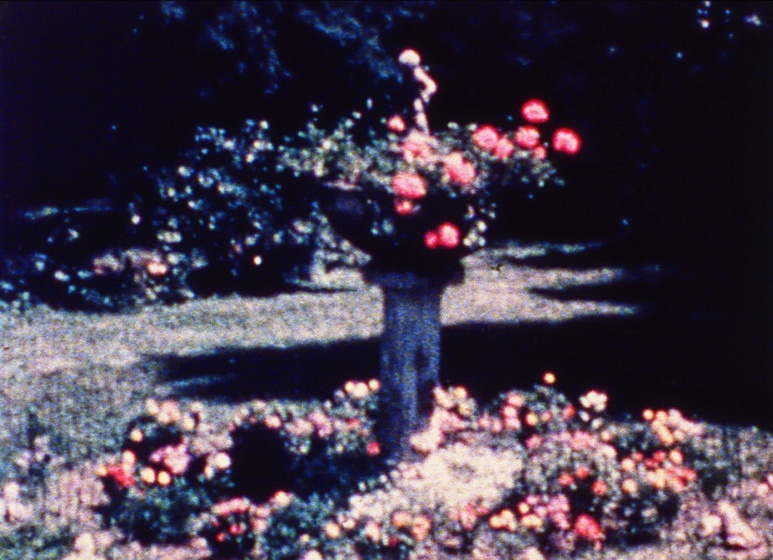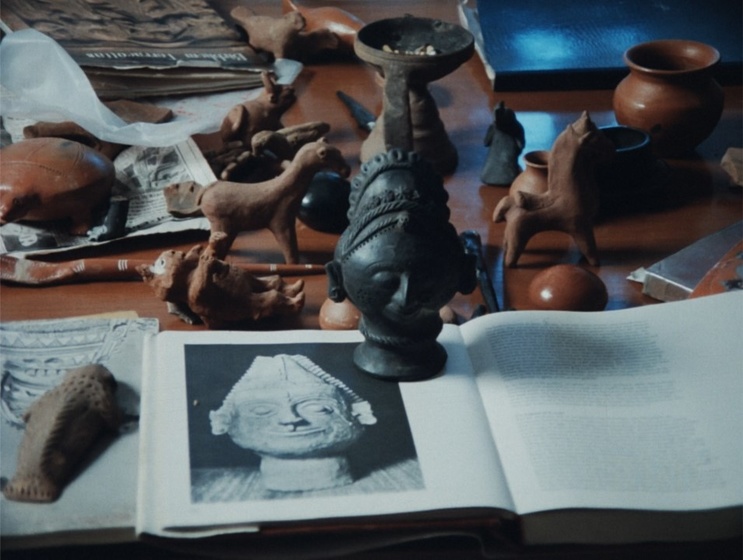All animals have a different perception of time. How animals take time wouldn't necessarily be real-time for us. If a fruit fly lives for a day, every second is a year. They perceive totally differently from us. Many of my films are shot at a speed different from the projection speed, but I don’t think of them as “at a different speed.” When I do time-lapse, I try to make it look like it's not sped up. Of course, shadows would move faster, but I don't have many cars or people moving around. Only light is moving around. I don't think of a film like Panorama as a time-lapse film. It’s a film about how time is in my memory. I tend to forget about whatever tricks I employed in the shooting and think about my films as real life that’s collected in a shorter period of time.
I had never seen a pan in time-lapse, and I had seen a lot of films. At the time, if you ever saw a time-lapse, the image was solid, it wouldn’t move. When I started making Panorama, I was doing it all a frame by frame. It was so painstaking. I realized that if I got a motor to run it, I could save myself the cranking and it wouldn't pan enough to make a blur. I made a continually running platform and bought a single-frame unit. I was figuring out this setting for six months before I could shoot the film. I knew nothing about motors or gears, but I had surplus battery-operated motors and figured out what else I needed.
*
To me, the surface of what you can do with film has barely been scraped. I don't look at digital and film the same way. I treat them totally differently. In film, you can do things one frame at a time and make your edits between each frame. The idea of working on each frame opens up the possibilities as to what you can do. I don’t know if I’d have the patience to do film now. I would shoot things for six or eight hours straight to get individual shots, with my hands on the camera moving it. It was intense to work that way.
I only shoot what I think I’m going to use. I even do that with video. I never film long shots. I shoot only as much as I need, and I’m glad I’ve learned that way. If you keep shooting, you’ll get the same result you got in the beginning. I tend to think that if you can do it, the first take is always going to be the best—unless you really fuck up, and if you do, maybe it’ll be the best because of that. I never do ten takes of something, it never makes it better.
There was a sense in the experimental film world that if you made shorter work, you weren't serious. But I saw a 100-foot roll of film, and to me, making a film that length was like making a song—2 minutes and 40 seconds. Maybe films like Panorama or Reseeding Air are more like an album; they’re more complete.
I made a number of spontaneous films. They had much to do with playing with the camera and trying new ideas. I didn't know whether they’d be successful. When I start overthinking things, I feel like I’m going in the wrong direction. I learned early on that if you’re going for something that’s not quite there and you do whatever you can to fix it, it’s broken from the beginning. You don’t fix things, it either works or it doesn’t. When I edit a movie, there’s nothing sacred. Sometimes the best shots don’t make it because they drag the film down, take it in a direction it shouldn’t go, or take too much attention. As an editor, I go into it without preconceived notions of how I will put something together. I remember talking to George Kuchar when I was a student at the San Francisco Art Institute, and he said, “I love my mistakes. That’s what I look for.” That struck me. I realized you can’t make mistakes on purpose. They have to be real. I try to give myself enough room so that I can make mistakes. Sometimes it works and sometimes it doesn’t, but that seems to be when I grow.
*
When I moved to San Francisco in 1970 to attend the Art Institute, Canyon Cinema put up a big show. They had a lot of films, there were about 600 people there, and I was introduced to everyone: George Kuchar, Bruce Conner, James Broughton… That one screening turned me on to film. The one who struck me the most was George Kuchar. I’ve always felt that having a sense of humor and a sense of fun was important. At that time, no one had seen anything like that, and they loved what he was doing.
I was trying to find myself early on. I graduated in 1975, finished my Masters in 1976, and married in 1977. I had to be serious, and I got work doing different film-related things, being a jack of all trades. I could do sound, I could do assisting camera, I could do camera… When the negative cutter in town quit to be an editor, I started cutting negative. I worked for Japanese TV on a few things. I learned many technical things that I could then use in my movies. From the seventies to around 1981, I was just trying to work and make a living, and I would make films whenever I could. I didn’t consider myself an artist because I just didn’t have time to work on art.
From 1982 to 1984, I got a job teaching film at UC Davis. I was working on something that I liked for once. Davis was an amazing place back then. It had some great artists: William Wiley, Robert Arneson, Rowland Peterson, Manuel Neri, Wayne Thibaud… The person who taught film before me there as a visiting artist was Robert Frank. It was the real thing. It made me feel like I was an artist for once. I only feel like an artist when I’m doing work. Otherwise, I’m just a guy with a dog who likes to go to the beach.
*
In San Francisco, there was a sense of community. We all had a sense of fun and play and humor. None of us were looking for careers in filmmaking. We weren’t doing it for ulterior motives other than the love of making movies. I think that we didn’t take ourselves too seriously. We weren’t looking for anything beyond making a good movie and showing it. There was a sense that the more serious academic filmmaking was like going to a funeral. Dean Snider and Steve Schmidt once organized a show that was a Stan Brakhage dance party. That was controversial. People would say, “They're making fun of Stan Brakhage.” But they weren’t, they liked Brakhage’s films. They just wanted them to be seen in a different light. You could watch his films and enjoy yourself. I didn't understand why it was controversial. I don't think Stan Brakhage would have had a problem with it. It was people watching those films and enjoying themselves. But it was seen as irreverent, making his work a joke. For the most part, people’s opinion was that experimental film was boring, that they didn't get it, and they didn't want to be subjected to it. But that that wasn't what I was doing or the filmmakers I knew were doing. In our films, there was life, light, fun, and joyful experience.
There’s a coldness to me in most of the East Coast experimental films. I want to see the filmmaker in the film. When I watch a George Kuchar film, they are him. In the academic world, what counts is how well you can explain what you’re doing. I made movies because I didn’t want to have to explain anything. Personal expression is important to me. Most of my movies have a subject matter that’s part of my life and things I’m familiar with that I can work with over a period of time. Panorama was made where I live, Reseeding Air is where I grew up. When I shot Panorama, I took the camera out to other places, but that footage didn’t work because, in the end, it had to be footage from my apartment or the roof of the apartment. Another film, Non Legato, is all out the window of where I lived.
There’s a danger when your history is only from other artists. It becomes inbred and creates inside jokes that no one gets. It turns into an academic thing, and that turns me off. You shouldn't close yourself. To be a good cinematographer, you should be a good dancer. You should know how to move. That’s what I love about film, that it encompasses everything. Again, film hasn’t existed long enough to scan the surface of the possibilities.
